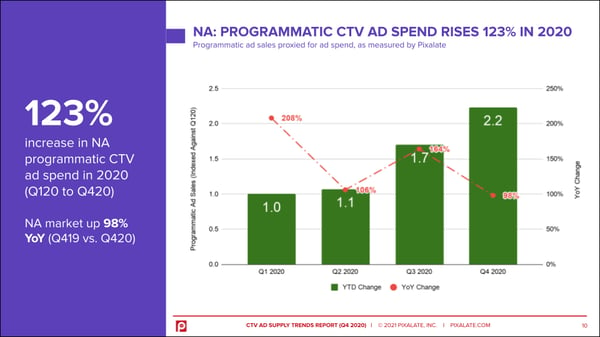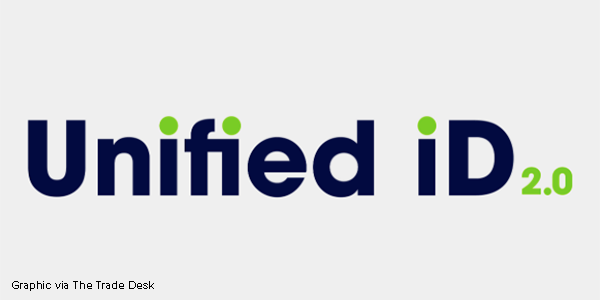
This week's review of ad fraud and quality in the digital advertising space.

This Pixalate blog details how the North American programmatic CTV ad market made its way through 2020. According to Pixalate's data, North America's programmatic CTV ad market increased 123% in 2020, when comparing Q120 to Q420. It was also up 98% year-over-year.
Learn more in our blog, or download Pixalate's full 2020 Connected TV Ad Spend Supply Trends Report.

"The rise of over-the-top and connected TV advertising is presenting unique challenges to political marketers, which may worsen as more money pours into the space," wrote Campaigns & Elections in an article detailing what political marketers face in the booming CTV space, including brand safety issues.

"A group of seven companies across television and ad tech—including ad platform Dish Media and credit reporting firm TransUnion—are joining forces to create the TV Data Initiative, which wants to help bring digital-like ways of ad targeting to TV," reported Adweek.

According to the Wall Street Journal, Publicis Groupe has signed on to use The Trade Desk's Unified ID 2.0 solution, which has gained traction as a possible alternative to third-party cookies. "Trade Desk has been recruiting online publishers to create new user identifiers for ad targeting, but the Publicis deal represents new movement on the advertising side of the business," wrote the WSJ.

"Internet advertising made a huge rebound in Q4, growing 29% YoY to $45.6 billion, according to the 2020 IAB Internet Advertising Revenue Report," reported AdExchanger. "Overall online advertising in 2020 grew 12% YoY to $140 billion."
*By entering your email address and clicking Subscribe, you are agreeing to our Terms of Use and Privacy Policy.
These Stories on Weekly Recaps
*By entering your email address and clicking Subscribe, you are agreeing to our Terms of Use and Privacy Policy.

Disclaimer: The content of this page reflects Pixalate’s opinions with respect to the factors that Pixalate believes can be useful to the digital media industry. Any proprietary data shared is grounded in Pixalate’s proprietary technology and analytics, which Pixalate is continuously evaluating and updating. Any references to outside sources should not be construed as endorsements. Pixalate’s opinions are just that - opinion, not facts or guarantees.
Per the MRC, “'Fraud' is not intended to represent fraud as defined in various laws, statutes and ordinances or as conventionally used in U.S. Court or other legal proceedings, but rather a custom definition strictly for advertising measurement purposes. Also per the MRC, “‘Invalid Traffic’ is defined generally as traffic that does not meet certain ad serving quality or completeness criteria, or otherwise does not represent legitimate ad traffic that should be included in measurement counts. Among the reasons why ad traffic may be deemed invalid is it is a result of non-human traffic (spiders, bots, etc.), or activity designed to produce fraudulent traffic.”

